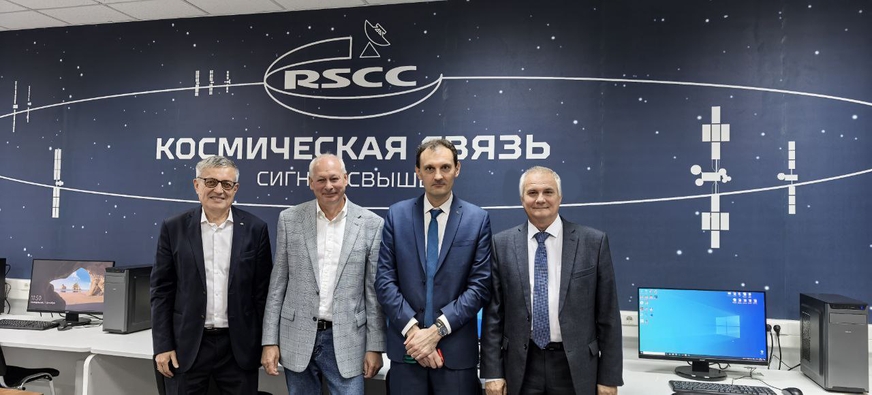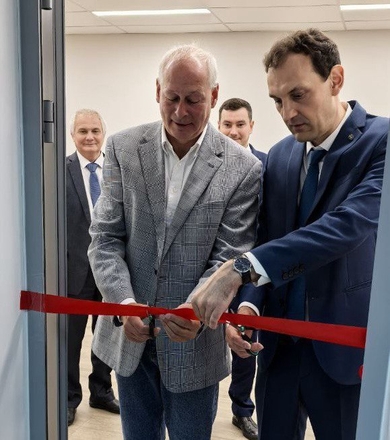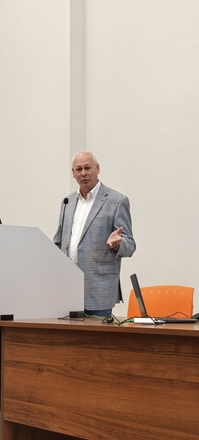Into space from the audience: General Director of RSCC Alexey Volin gave a lecture at the Siberian Federal University
On Knowledge Day, September 1, General Director of RSCC Alexey Volin gave a lecture at the Siberian Federal University (SFU) on the principles of satellite communications using the example of an enterprise constellation. The meeting with the students took place as part of the grand opening of the new thematic auditorium of RSCC at the SFU School of Physics and Mathematics in Krasnoyarsk. The opening ceremony was also attended by Director of the Zheleznogorsk Space Communication Center Rais Muratov, his deputy Vadim Zhukov and Director of the Institute of Engineering Physics and Radioelectronics at SFU Andrey Minakov.
There are currently more than 12,000 telecommunications, navigation, meteorological and scientific satellites operating from different orbits in space. Each orbit has its advantages and disadvantages: due to the fixed position in the sky, geostationary satellites are an ideal solution for broadcasting. At the moment, with the help of the RSCC constellation, 1,100 TV channels are being delivered, Alexey Volin told the students.
“Today, 385 communication spacecraft are operating on the GEO worldwide, allowing sailors in the Arctic or scientists in Antarctica to keep in touch with the rest of the world. As for the 12 RSCC satellites, they guarantee 100% coverage of the entire length of the Northern Sea Route. In addition, 99.2% of the Arctic land zone of Russia is located in the service area of the enterprise's satellite system. On the opposite side, in Antarctica, RSCC delivers Russian TV programs to five scientific stations: Bellingshausen, Novolazarevskaya, Progress, Mirny and Vostok,” added General Director of the enterprise.
RSCC is interested in education of new talents and has long been cooperating with Russian leading technical universities in the framework of educational lectures and seminars, giving students the opportunity to immerse themselves in the real challenges of the industry.
“Now a lot of young people want to go to work in our field, the new generation is interested in space. All that remains is to help them gain the necessary knowledge and experience so that competent and flexible-minded specialists with right vision will eventually come to the industry,” Alexey Volin said in his lecture. “Graduates who have received education in space communications field can find themselves not only in RSCC, but also at 300 domestic enterprises manufacturing devices and components for Russian spacecraft, as well as in various satellite structures in more than 60 countries where we provide our services.”
To work at RSCC, graduates need, in addition to professional knowledge, to develop erudition, the ability to learn new things, the ability to defend their point of view in a reasoned manner and work in a team, he said. “In the end, we need employees who simply love life, because then we understand why we pay them a good salary,” said General Director of the company.


